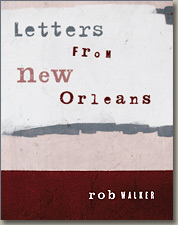Here’s something I have no logical reason to own: A player piano roll. Of course, it’s a “St. James Infirmary” player piano roll, so when it popped up on eBay, I bid on it. And I won: $11.50 plus shipping. It arrived yesterday. For a little while I felt pretty silly as opened the package and assessed my new possession. But that feeling passed quickly. I’m thrilled to have it.
I have to thank this site’s most valuable friend, Mr. Robert Harwood. Partly for egging me on to bid. Partly for having the good sense to do a little Web research related to this item that I will share with you now.
One of the reasons I was at least somewhat tempted to snap this up from the moment I saw it is that the package notes the copyright holder as Gotham Music Service, Inc. — the company of Irving Mills, who claimed authorship of “SJI” under the name Joe Primrose. (See the 2005 SJI essay for more on that.) I hardly paid attention to the bit on the package that says, “Played by J. Lawrence Cook.”
But as Mr. Harwood found, J. Lawrence Cook was a big deal in the player piano business. According to the 1976 obituary reprinted on the web site of the Automatic Musical Instrument Collector’s Association, he was “sometimes known as Piano Roll Cook because of his career as an arranger, composer and maker of the rolls for player pianos.” The maker of this roll, Q.R.S., was one of several companies he worked for over the course of a career that stretched from the 1920s, until his death. “Mr. Cook was a friend of such jazz pianists as W. C. Handy, Eubie Blake and Jelly Roll Morton. Teddy Wilson was one of his pupils.”
Another site found Mr. Harwood — it seems connected to one of Mr. Cook’s descendants — includes a couple of quotations from Q.R.S. catalogs. From 1974:
J. Lawrence Cook is indeed a legendary name in the Player Piano industry. His first QRS recording was issued in 1921, and Mr. Cook has been recording music rolls ever since! “Cookie”, as his friends call him, was the only artist to be retained full time by QRS during the lean Depression years and is responsible for almost every QRS Roll issued from 1931 until 1961!
And from one published in 1990:
J. Lawrence Cook … was the undisputed master of piano roll recording for over 40 years. Between 1921 and 1961, he recorded thousands of rolls for QRS which remain unequalled for their balance and imagination.
 Most remarkable of the links Mr. Harwood passed along, however, is this one. It leads to a site where you can actually hear a MIDI version of Cook’s “SJI” roll being played!
Most remarkable of the links Mr. Harwood passed along, however, is this one. It leads to a site where you can actually hear a MIDI version of Cook’s “SJI” roll being played!
How does it sound? A little odd, to me. It’s done as a fox trot. So it has this sort of jarringly upbeat, carnival quality to it. Or maybe like something you’d now hear dubbed over a silent movie — people jerking around weirdly on screen, throwing pies at each other.
It goes by really fast, but on the second and third listens I was able to get over that initial impression, and it grew on me. It has a certain seductive … pizazz. Not a word I normally associate with “SJI,” but that’s okay. In fact, it’s good.
 Anyway, as I opened my new (old) Q.R.S. box and unfurled the roll enough to see the pattern of puncture marks that somehow converts into music in a player piano, I took a moment to ponder the strange history of technology and song. I had to give the MIDI version another listen. What better sound track could I have?
Anyway, as I opened my new (old) Q.R.S. box and unfurled the roll enough to see the pattern of puncture marks that somehow converts into music in a player piano, I took a moment to ponder the strange history of technology and song. I had to give the MIDI version another listen. What better sound track could I have?




 A couple of years ago I did some research into the song "St. James Infirmary," wrote up what I found, emailed that essay to friends and posted it on my web site (as part of a series of "Letters From New Orleans," as I was living in that city at the time). Based on the feedback, I wrote a second version of the essay, and asked for more feedback. Based on that, I wrote a
A couple of years ago I did some research into the song "St. James Infirmary," wrote up what I found, emailed that essay to friends and posted it on my web site (as part of a series of "Letters From New Orleans," as I was living in that city at the time). Based on the feedback, I wrote a second version of the essay, and asked for more feedback. Based on that, I wrote a 
